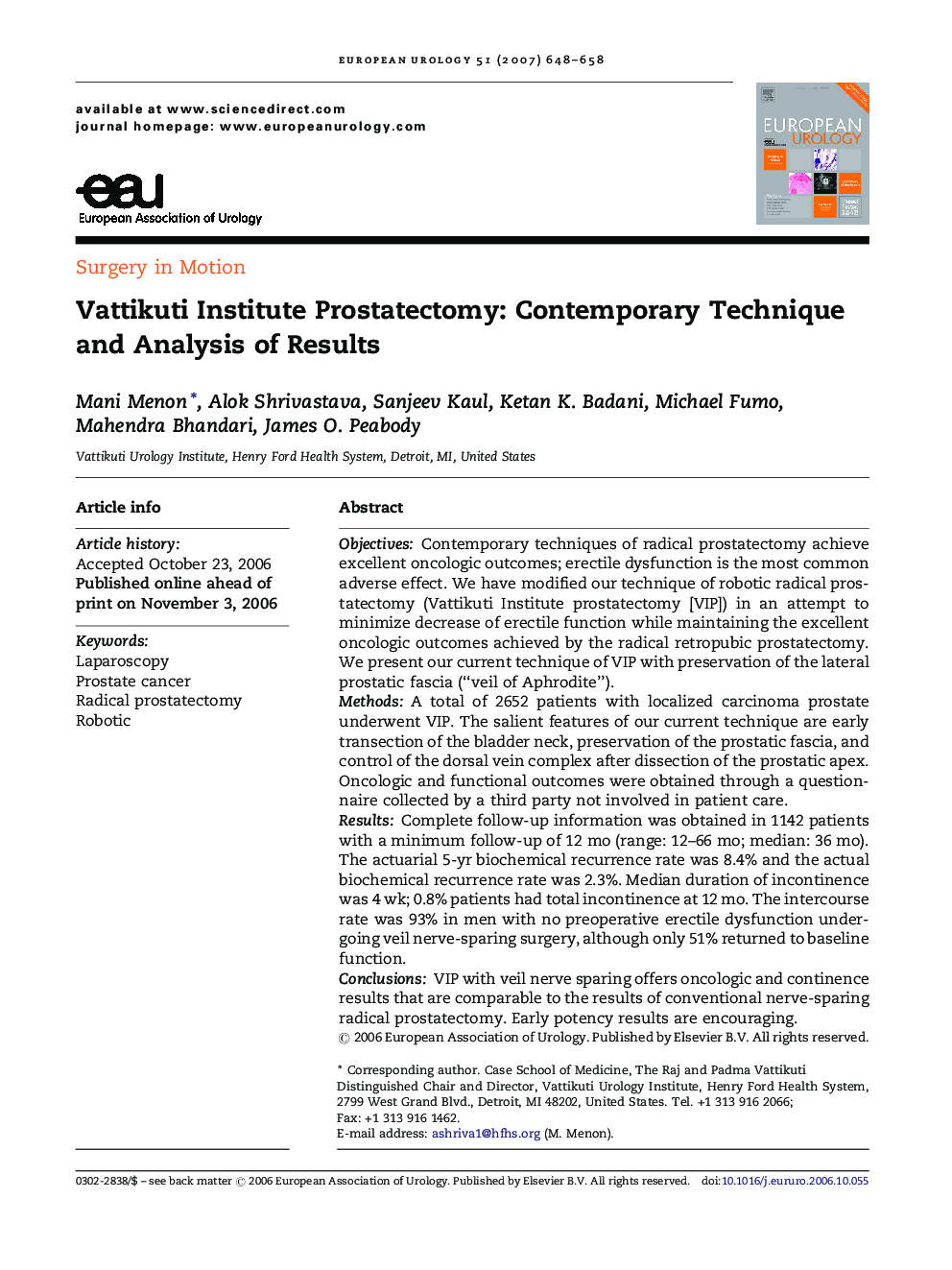| Article ID | Journal | Published Year | Pages | File Type |
|---|---|---|---|---|
| 3929787 | European Urology | 2007 | 11 Pages |
ObjectivesContemporary techniques of radical prostatectomy achieve excellent oncologic outcomes; erectile dysfunction is the most common adverse effect. We have modified our technique of robotic radical prostatectomy (Vattikuti Institute prostatectomy [VIP]) in an attempt to minimize decrease of erectile function while maintaining the excellent oncologic outcomes achieved by the radical retropubic prostatectomy. We present our current technique of VIP with preservation of the lateral prostatic fascia (“veil of Aphrodite”).MethodsA total of 2652 patients with localized carcinoma prostate underwent VIP. The salient features of our current technique are early transection of the bladder neck, preservation of the prostatic fascia, and control of the dorsal vein complex after dissection of the prostatic apex. Oncologic and functional outcomes were obtained through a questionnaire collected by a third party not involved in patient care.ResultsComplete follow-up information was obtained in 1142 patients with a minimum follow-up of 12 mo (range: 12–66 mo; median: 36 mo). The actuarial 5-yr biochemical recurrence rate was 8.4% and the actual biochemical recurrence rate was 2.3%. Median duration of incontinence was 4 wk; 0.8% patients had total incontinence at 12 mo. The intercourse rate was 93% in men with no preoperative erectile dysfunction undergoing veil nerve-sparing surgery, although only 51% returned to baseline function.ConclusionsVIP with veil nerve sparing offers oncologic and continence results that are comparable to the results of conventional nerve-sparing radical prostatectomy. Early potency results are encouraging.
